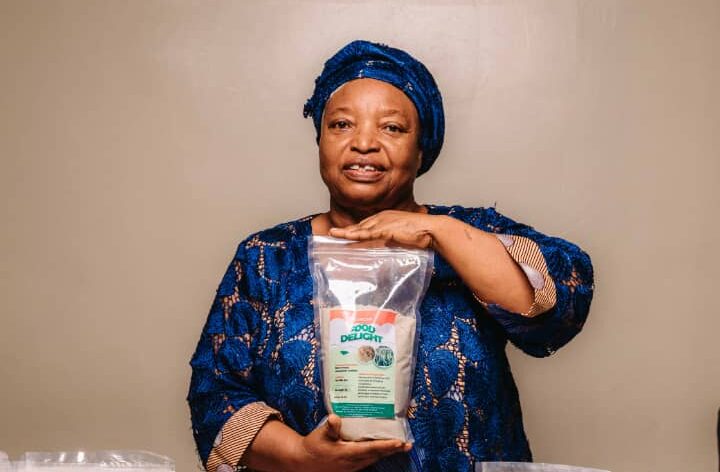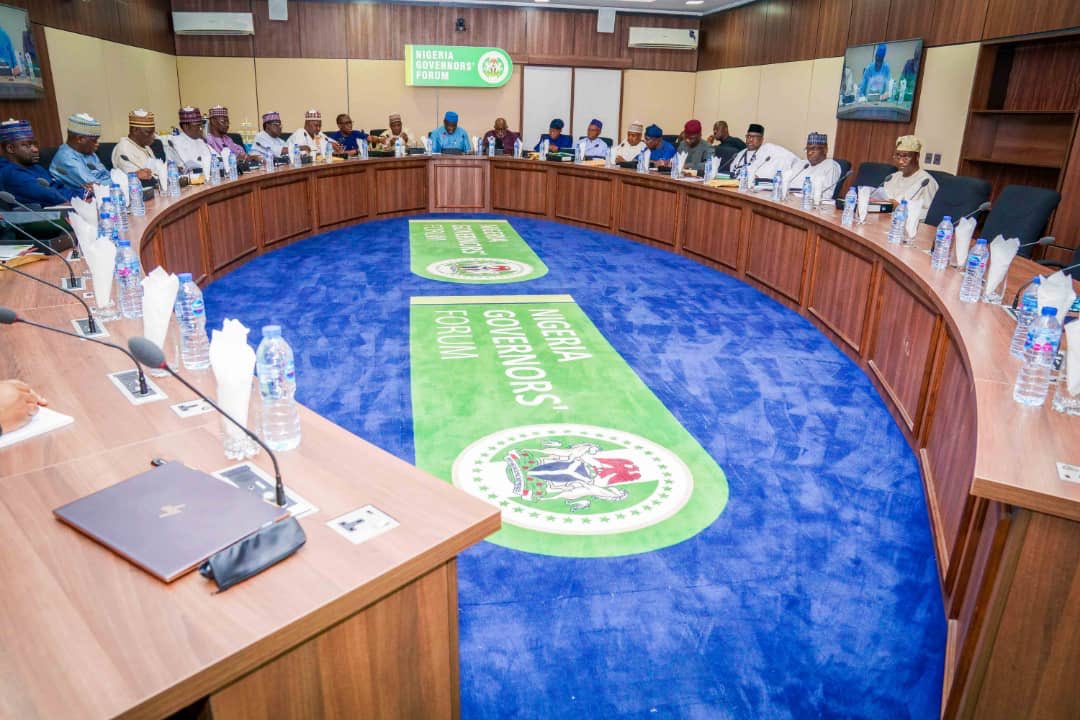Women in agriculture: why the government should not give loans to women for agriculture — Farmer
Janet Adejoh, the Benue State Coordinator of the Smallholder Women Farmers Organization of Nigeria, and retired, depends on income from her farm and her food processing mini-business to survive. She laments the difficulties she faces in raising capital to finance her business.
It produces garri, cassava flour, soy flour and spices.
In this episode of our series, she talks about the association's efforts to help women farmers who have been affected by recent floods in many states, including Benue.
Tell us about your background in agriculture
I am a retired civil servant, worked with the agricultural development project and have a master's degree in agricultural seed marketing and management. I have been a farmer for more than 20 years and it is also a story of generations because the environment encourages activities like agriculture. But recently I haven't been so active there because of my age, so I started processing and producing finished products.
Why did you leave farming?
I left because of age. I could no longer actively engage in farming. I thought to myself instead of stressing out, I should start the treatment.
Since joining SWOFON, have you benefited from government projects?
Well, last year the government distributed inputs and machinery to women farmers in Nigeria.

Recently there have been issues with flooding and your state is one of the worst affected states, let us know how this has affected you and other women there.
 Janet Adejoh showing her packaged goods
Janet Adejoh showing her packaged goodsEven before the flood came it was COVID-19, after that this flood, this year's flood was massive, it affected so many women. It didn't affect me because I don't farm near the river and I don't reside near the river.
Sometimes even the crops planted in the highlands rot due to waterlogging and some of the crops in the highlands were washed away. The women's crops such as tomatoes and peppers were washed away by the floods.

Has your association helped the women who have lost so much to the floods, what has the government done for these women?
We are compiling the list of people who have been affected by the floods, we had a meeting with the Minister of Agriculture regarding the issues, and we will submit the list to the All Farmers Association of Nigeria (AFAN ), farmers in Bauchi State have had training on dry land farming, I hope they will take it to other states for people to benefit. We hope the government will help them soon.
A survey by SWOFON found that most pesticides used by women in four states including Benue are harmful to health and in most cases cause diseases such as cancer, what alternatives should be used?
I use inorganic pesticides. You know that most of these farmers are illiterate and have no training in the use of pesticides. The women put the chemicals in a basin and mix them with water. They use cassava leaves for dusting without using nasal masks, sometimes they have their babies on their backs while doing so. They should focus on animal droppings. Making inorganic manure is very expensive. I use wood ash, pepper, neem seeds and many more. I organize training on the use of pesticides.
Let's move away...

Janet Adejoh, the Benue State Coordinator of the Smallholder Women Farmers Organization of Nigeria, and retired, depends on income from her farm and her food processing mini-business to survive. She laments the difficulties she faces in raising capital to finance her business.
It produces garri, cassava flour, soy flour and spices.
In this episode of our series, she talks about the association's efforts to help women farmers who have been affected by recent floods in many states, including Benue.
Tell us about your background in agriculture
I am a retired civil servant, worked with the agricultural development project and have a master's degree in agricultural seed marketing and management. I have been a farmer for more than 20 years and it is also a story of generations because the environment encourages activities like agriculture. But recently I haven't been so active there because of my age, so I started processing and producing finished products.
Why did you leave farming?
I left because of age. I could no longer actively engage in farming. I thought to myself instead of stressing out, I should start the treatment.
Since joining SWOFON, have you benefited from government projects?
Well, last year the government distributed inputs and machinery to women farmers in Nigeria.

Recently there have been issues with flooding and your state is one of the worst affected states, let us know how this has affected you and other women there.
 Janet Adejoh showing her packaged goods
Janet Adejoh showing her packaged goodsEven before the flood came it was COVID-19, after that this flood, this year's flood was massive, it affected so many women. It didn't affect me because I don't farm near the river and I don't reside near the river.
Sometimes even the crops planted in the highlands rot due to waterlogging and some of the crops in the highlands were washed away. The women's crops such as tomatoes and peppers were washed away by the floods.

Has your association helped the women who have lost so much to the floods, what has the government done for these women?
We are compiling the list of people who have been affected by the floods, we had a meeting with the Minister of Agriculture regarding the issues, and we will submit the list to the All Farmers Association of Nigeria (AFAN ), farmers in Bauchi State have had training on dry land farming, I hope they will take it to other states for people to benefit. We hope the government will help them soon.
A survey by SWOFON found that most pesticides used by women in four states including Benue are harmful to health and in most cases cause diseases such as cancer, what alternatives should be used?
I use inorganic pesticides. You know that most of these farmers are illiterate and have no training in the use of pesticides. The women put the chemicals in a basin and mix them with water. They use cassava leaves for dusting without using nasal masks, sometimes they have their babies on their backs while doing so. They should focus on animal droppings. Making inorganic manure is very expensive. I use wood ash, pepper, neem seeds and many more. I organize training on the use of pesticides.
Let's move away...
What's Your Reaction?






















